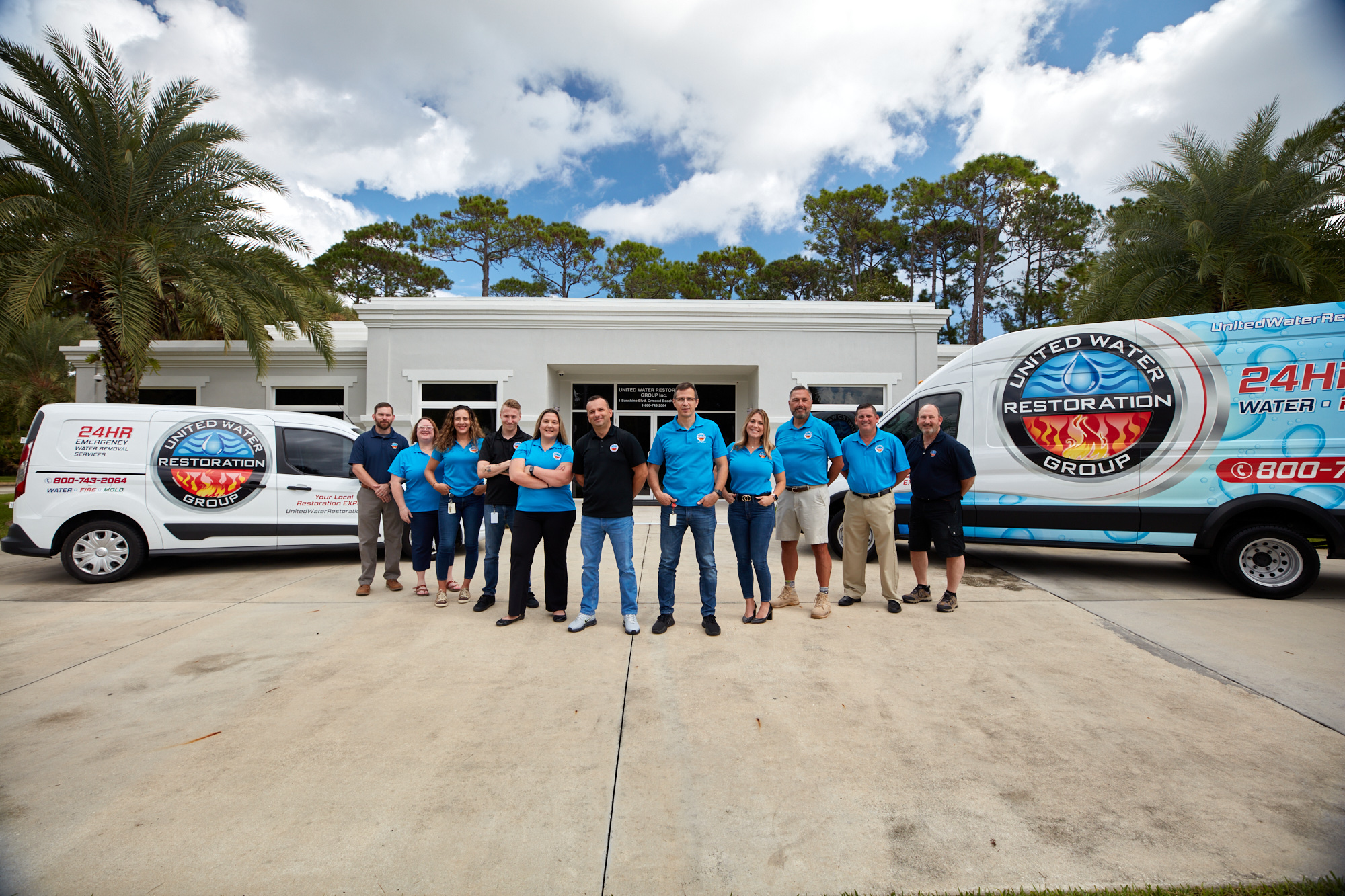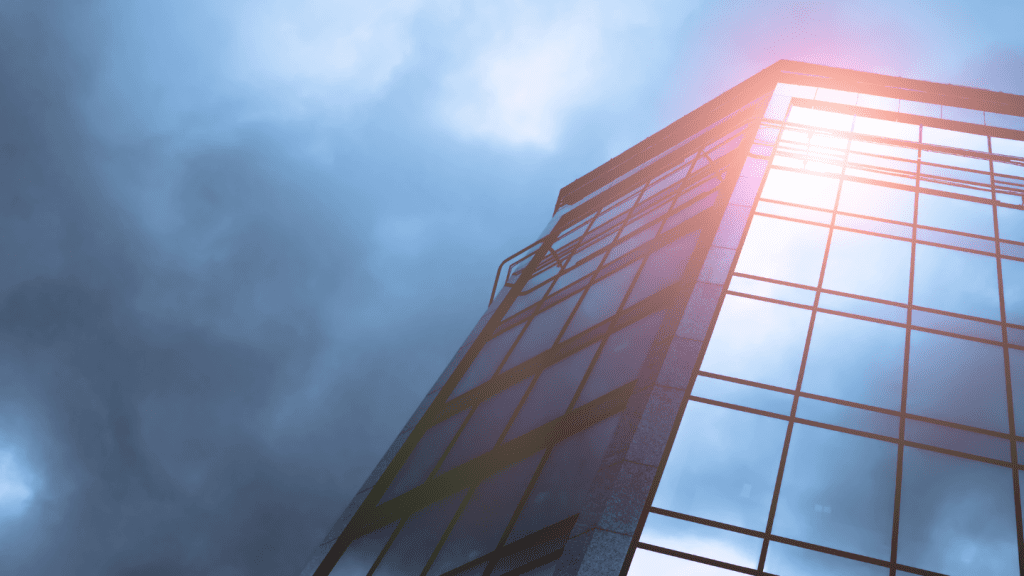Water damage in commercial properties is not just a nuisance; it’s a significant threat to businesses, their assets, and their bottom line. Water damage can wreak havoc on everything from office buildings to retail spaces, leading to costly repairs and disruptions in operations.
Understanding the primary causes, preventive measures, and remediation strategies can help mitigate the risk and minimize the impact of water damage incidents. Here’s a comprehensive guide highlighting The 7 Leading Causes of Water Damage in Commercial Buildings, measures to prevent water losses, and what to do if an emergency water loss arises.
7 Leading Causes of Commercial Water Damage:
- Plumbing Issues: Leaking pipes, burst pipes, and faulty plumbing fixtures are common culprits. These issues are common in buildings with outdated infrastructure, corrosion, or inadequate installation.
- Roof Leaks: Damaged or improperly maintained roofs can cause water to seep into the building during long, heavy periods of rainfall or due to snowmelt.
- HVAC System Malfunctions: Faulty HVAC systems can lead to condensation buildup or leaks, especially in humid environments.
- Natural Disasters: Floods, storms, hurricanes, and other natural disasters can cause extensive water damage to commercial properties.
- Poor Drainage: Poorly maintained drainage systems around the property can result in water pooling, which can seep into the building’s foundation or basement.
- Appliance Failures: Malfunctioning appliances such as water heaters, dishwashers, and refrigerators can leak water, causing damage to floors and nearby structures.
- Sewer Backup: Sewer line blockages or backups can result in contaminated water flooding the premises, posing health risks, and causing extensive damage.

Preventive Measures to Consider to Minimize Water Damage
- Regular Maintenance: Implement a proactive maintenance schedule for plumbing, roofing, HVAC systems, and appliances to detect and address issues early.
- Roof Inspections: Regularly inspect the roof to identify and repair any damage or weak spots before they lead to leaks.
- Proper Drainage: Regularly clean gutters, downspouts, and drainage systems of debris to redirect water away from the building.
- Temperature Monitoring: Monitor temperature levels to prevent pipes from freezing during cold weather and maintain optimal conditions to avoid condensation buildup.
- Appliance Maintenance: Inspect and maintain appliances regularly, checking for leaks, worn-out hoses, or faulty components.
- Sewer System Maintenance: Schedule periodic inspections and maintenance of sewer lines to prevent backups and blockages.
- Emergency Response Plan: Ensure your business has a comprehensive Emergency Response Plan (ERP) with clear instructions and emergency contact details for your building managers, maintenance team, and restoration partners to swiftly and effectively handle water damage emergencies, minimizing potential disruptions and damages.
Steps to Take in the Event of a Water Damage Emergency: Remediation Strategies
- Immediate Action: Act quickly to stop the source of water intrusion and mitigate further damage. Shut off water mains if necessary. Avoid direct contact with sewage water to prevent the spread of diseases and infections. Handling sewage water or floods requires specialized equipment and training. Contact a professional cleanup company, such as United Water Restoration Group, with experience in dealing with sewage spills to ensure proper remediation and disinfection of the affected area.
- Water Extraction: Use pumps, wet vacuums, and other equipment to remove standing water from affected areas.
- Drying and Dehumidification: Employ industrial fans, dehumidifiers, and drying equipment to dry the premises and prevent mold growth thoroughly.
- Cleanup and Disinfection: Clean and disinfect affected surfaces, furnishings, and equipment to remove contaminants and prevent mold and mildew growth.
- Restoration and Repairs: To prevent mold growth, repair or replace damaged building materials, such as drywall, flooring, insulation, and structural components.
- Documenting Damage: Document the extent of the damage through photographs, videos, and written records for insurance claims and future reference.
- Professional Assistance: Consider hiring certified water damage restoration professionals with experience in commercial properties to ensure thorough and efficient drying and remediation.
While water damage in commercial properties can stem from various sources, plumbing failures are the most significant cause of such incidents.
Aging infrastructure, inadequate maintenance, external factors, human error, and tenant behavior all contribute to the risk of plumbing failures and subsequent water damage.
Commercial property owners and managers can mitigate the risk of water damage and safeguard their investments against this silent threat by prioritizing proactive maintenance, investing in modern plumbing systems, and implementing robust emergency response protocols, including partnering with a trusted 24/7 restoration company such as United Water Restoration Group.

Contact the Commercial Water Damage Restoration Experts
United Water Restoration Group is more than just a restoration company. We are a trusted partner for businesses when faced with unpredictable water-related issues. Our critical commercial water remediation service helps companies recover from water damage caused by various incidents, including natural disasters, minor water leaks, and unexpected roof leaks.
Our expertise covers all challenges, making us well-equipped to handle even the most demanding situations. One of our flagship initiatives is our Preferred Vendor Program, tailored specifically for commercial properties. This program provides numerous benefits to business owners who achieve this status.
As one of the leading commercial restoration companies, we understand that each business has unique needs. Our Preferred Vendor Program allows us to personalize our approach and offer higher commitment and service. It enables us to respond quickly and effectively, minimize business downtime, and ensure you can return to business operations as soon as possible.
Contact our service line today (800) 430-5838 to speak directly to one of our trained experts!





